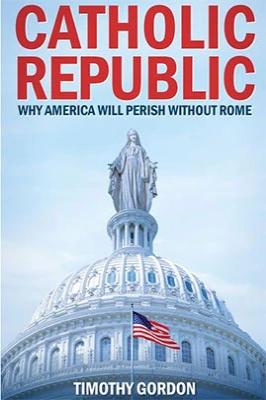
Catholic Republic
Publication Date: April 18, 2019
Format: Paperback
Pages: 256
Delivery in 2-9 business days.

Some Christians decry the deism of our Founding Fathers, claiming that outright anti-Christian principles lie at the heart of our Declaration of Independence and Constitution, crippling from birth our beloved republic.
Here philosopher Timothy Gordon forcefully disagrees, arguing that while anti-Catholic bias kept them from admitting their reliance on Aristotle, Aquinas, and the early Jesuits, our Protestant and Enlightenment Founding Fathers secretly held Catholic views about politics and nature.
Had they fully adhered to Catholic principles, argues Gordon, the "Catholic republic" that is America from its birth would not today be on the verge of social collapse. The instinctive Catholicism of our Founders would have prevented the cancerous growth of the state, our subsequent loss of liberties, the destruction of families, abortion on demand, the death of free markets, and the horrors of today's pervasive pagan culture.
In Catholic Republic, Gordon recounts our nation's clandestine history of publicly repudiating, yet privately relying on, Catholic ideas about politics and nature. At this late hour in the life of the Church and the world, America still can be saved, claims Gordon, if only we soon return to the Catholic principles that are the indispensable foundation of all successful republics.